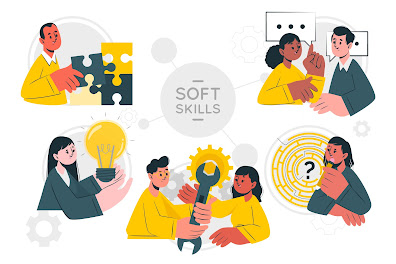Level 3 CAVA vs. Other Assessment Qualifications: What Sets It Apart?
Understanding the Landscape of Assessment Qualifications
Assessment qualifications are essential for professionals involved in evaluating learners' skills, knowledge, and competence. A plethora of qualifications exist, each with its own focus and requirements. However, the Level 3 Certificate in Assessing Vocational Achievement (CAVA) distinguishes itself in several key areas.
What is Level 3 CAVA?
Level 3 CAVA is a UK qualification designed to equip individuals with the skills to assess learners in vocational settings.
Core Competencies of a Level 3 CAVA Holder
- Understanding Assessment Principles: CAVA holders grasp the fundamental concepts of assessment, including assessment planning, evidence gathering, and feedback provision.
- Practical Assessment Skills: They can apply assessment methods effectively in real-world vocational settings, ranging from observations to questioning and portfolio assessment.
- Learner Support and Development: CAVA holders are skilled in providing learners with appropriate guidance, support, and feedback to enhance their performance.
- Quality Assurance: They contribute to maintaining high assessment standards through adherence to quality assurance processes.
CAVA vs. Other Assessment Qualifications
While other assessment qualifications offer valuable knowledge and skills, CAVA stands out due to its specific focus on vocational learning.
CAVA vs. Level 3 Award in Assessing Vocationally Related Achievement (AVA)
While both qualifications focus on vocational assessment, CAVA is broader, covering a wider range of assessment methods and contexts. AVA, on the other hand, is more limited in scope.
CAVA vs. Teaching Qualifications
While teaching and assessment are interconnected, they are distinct roles. Teaching qualifications focus on instructional design and delivery, while CAVA concentrates on evaluating learner achievement against specific standards.
CAVA vs. Internal Verifier Qualifications
Internal verifiers ensure the consistency and quality of assessment. While CAVA provides a foundation for understanding assessment, an internal verifier qualification delves deeper into quality assurance processes and standardisation.
Unique Benefits of Level 3 CAVA
- Versatility: CAVA holders can assess learners across diverse vocational areas, making them adaptable to various workplace environments.
- Learner-Centric Focus: The qualification emphasizes supporting learner development, ensuring assessors prioritize learners' needs.
- Practical Application: CAVA's strong emphasis on practical skills equips holders to confidently apply assessment in real-world settings.
- Career Progression: CAVA can serve as a stepping stone to higher-level assessment roles or teaching positions.
Who Should Consider Level 3 CAVA?
- Vocational Trainers: Assessors play a crucial role in vocational training, and CAVA provides the necessary skills.
- Work-Based Assessors: Individuals assessing learners in workplace settings will benefit from CAVA's practical focus.
- Quality Assurance Professionals: Understanding assessment principles is essential for those involved in quality assurance.
Frequently Asked Questions About Level 3 CAVA
- Is Level 3 CAVA equivalent to other assessment qualifications? While CAVA shares some common ground with other qualifications, its specific focus on vocational assessment sets it apart.
- Can I assess any vocational area with a Level 3 CAVA? Yes, CAVA provides a broad foundation in assessment principles, allowing you to assess learners in various vocational areas.
- Do I need previous experience to undertake Level 3 CAVA? While experience can be beneficial, many providers offer CAVA courses suitable for beginners.
- What are the career opportunities after completing Level 3 CAVA? Successful completion can lead to roles as assessors, internal verifiers, or quality assurance officers in vocational settings.
Conclusion
Level 3 CAVA is a valuable qualification for individuals working in vocational education and training. Its emphasis on practical skills, learner support, and quality assurance sets it apart from other assessment qualifications. By equipping professionals with the competencies to assess learners effectively, CAVA contributes to the development of a skilled workforce.
Would you like to know more about specific assessment methods or the role of assessment in different vocational sectors?

.jpg)


Comments
Post a Comment